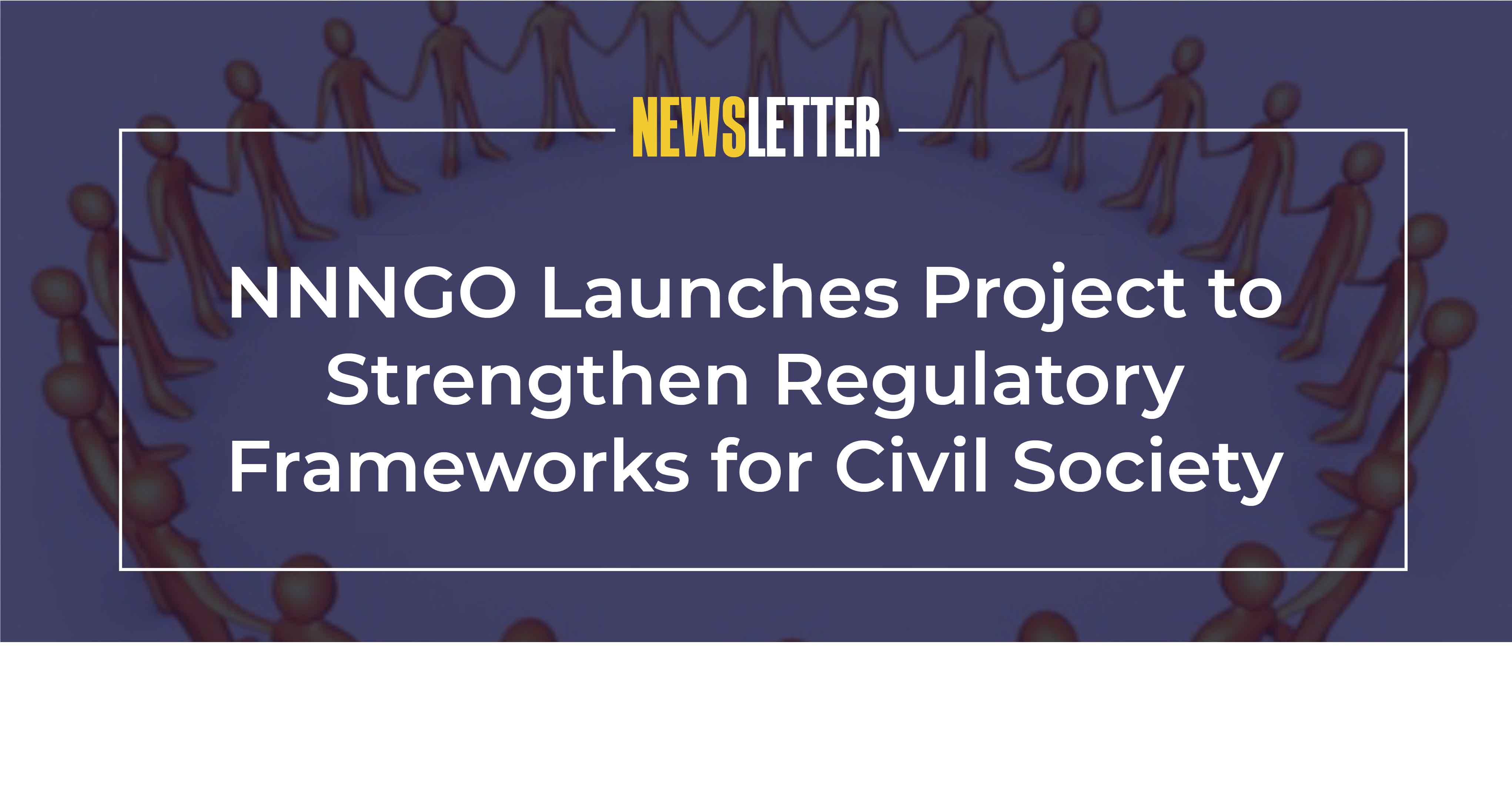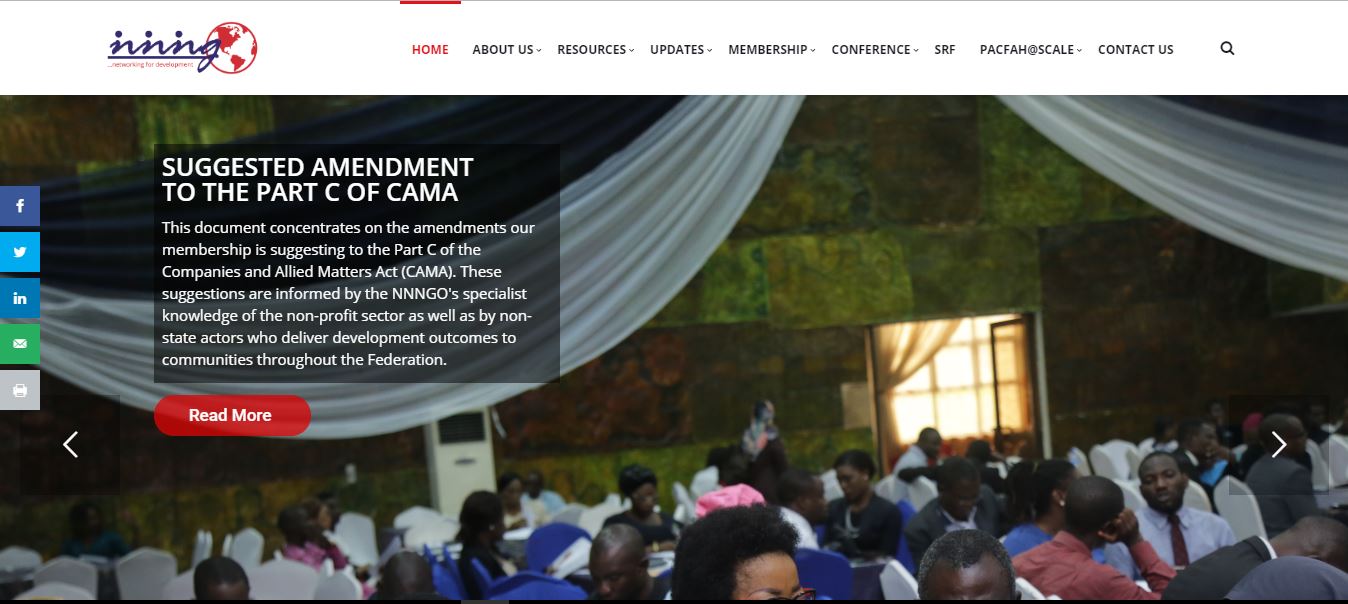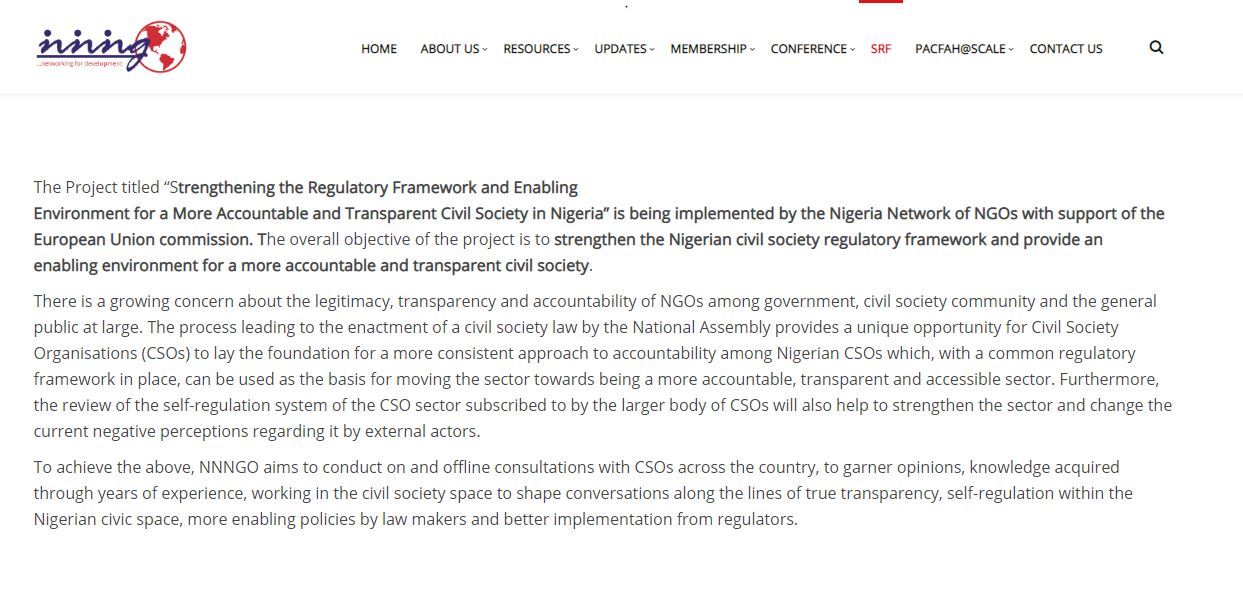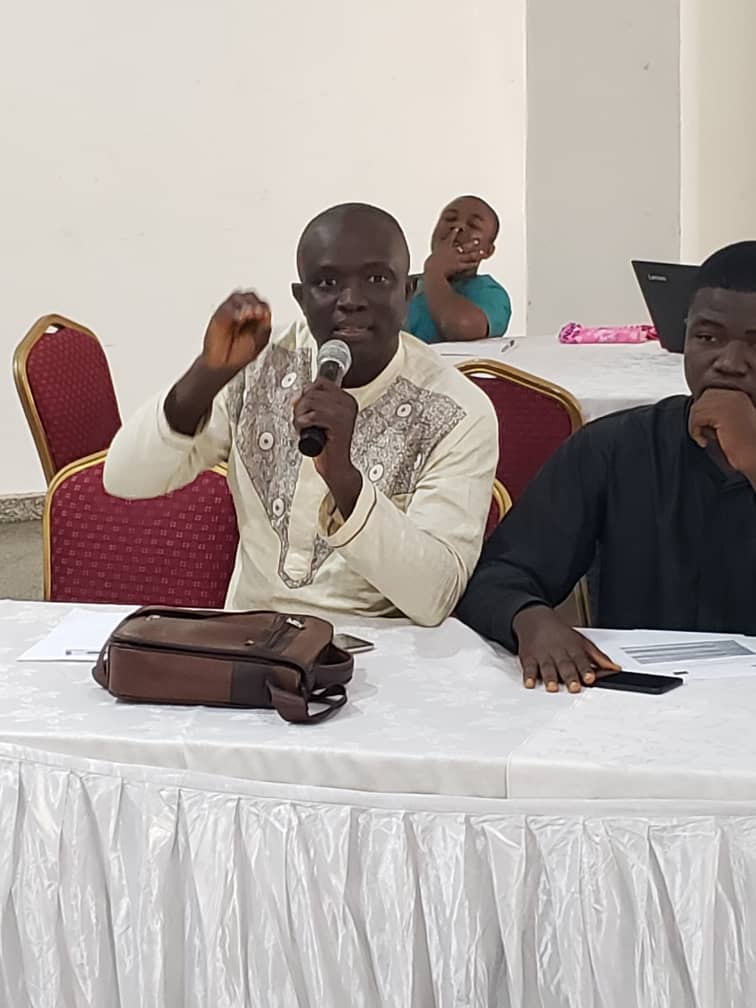

About the Project
The Nigeria Network of NGOs announces the launch of a project, funded by the European Union, titled, “Strengthening Regulatory Frameworks for a More Accountable and Transparent Civil Society in Nigeria”, that focuses on current regulatory realities within the Nigerian nonprofit sector with an aim to lead conversations and actions on how these regulations can be better implemented in a way that creates an enabling operational environment for Nigerian civil society organisations (CSOs).
Project Launch
A project launch themed “Understanding Nonprofit Regulatory Frameworks; Trends and Realities” was organised in Abuja on Monday, November 4, 2019. Participants who comprised seventy-two (72) CSOs gave insights into how best to carve out and popularize a self-regulatory mechanism that is responsive to the needs of the sector and can be effectively implemented in line with global best practices.

The Nigerian third sector is gradually awakening to the need to work together with regulators especially with regards to compliance issues and generally improve transparency and accountability within the sector. We are confident that this project and our approach to its implementation will allow for mutual communication among civic actors, regulators, and policymakers and we can all collaborate to create an enabling regulatory environment for the sector.

Oyebisi Oluseyi, Executive Director of the Nigeria Network of NGOs.
|
“We are excited about this project especially as it focuses on one of our strategic pillars as organisation protection of the operational environment of Nigerian Nonprofits. We also expect that by the end of the project, one of the outcomes, among others is that it will serve as a repository of knowledge on nonprofit regulations, and provide key insights on how to incorporate global best practices into our work and the civil society sector as a whole” added Oyebisi Oluseyi. Conversations revolved around issues of registration of Nigerian Nonprofits, regulations, legitimacy, accountability, and transparency for the third sector. Participants also discussed the development of a nonprofit Code of Conduct by the sector, for the sector and approved by the Government as a guide for the operations of the Nigerian NGOs. Suggestions were made as to how nonprofits can better engage in collaborations, employ public information systems, peer review, and self-assessment mechanisms to allow growth and sustainability of organisations, especially those at the grassroots.
A newly designed page tagged “Strengthening Regulatory Frameworks” (SRF) which offers a comprehensive understanding of the project has been created on the Network’s website www.nnngo.org where easy access is guaranteed to essential information on corporate governance within the Nigerian civil society sector, nonprofit realities as well as general information about Nigerian nonprofits. The page will be updated on a regular basis with news, pictures, and videos of project events, activities, milestones, and updates.



The project is intended to include peer reviews, consultations with CSOs across the country to garner opinions on regulations that they consider ideal and enabling; engagements with regulatory authorities and the National Assembly with the aim of producing a solid self-regulatory frame for Nonprofit organisations operating in Nigeria.
This publication is produced with funding from the European Union.
| Preference | Privacy Policy | Terms of Use
Nigeria Network of NGOs. 15, Ramat Crescent Ogudu GRA, Lagos.
@2019 NNNGO. www.nnngo.org. All Rights Reserved.








